
What services are included in Japan’s accessible charter vehicles?
For travelers with limited mobility, the greatest challenge of a trip is never about “how beautiful the destination is,” but rather “can I step out the door with peace of mind?” Whether you use a wheelchair, walk with a cane, or are a brave soul just stepping out of the rehabilitation phase, strolling freely through the streets of a foreign country takes not only a bit of courage, but also a great deal of information, proper equipment, and thoughtful arrangements.
Tokyo is undoubtedly one of the best cities to "travel freely and explore with confidence." The city not only boasts meticulously designed barrier-free facilities, but its residents are as warm and friendly as your next-door neighbors—or the cheerful breakfast shop staff who call you “handsome” or “beautiful” with a smile. More and more hotels are joining the ranks of “accessible hospitality,” taking real steps to create safe and comfortable accommodations, ensuring every traveler can enjoy their stay with peace of mind.
This is your ultimate guide to accessible travel in Tokyo: not only have we compiled a list of wheelchair-friendly accommodations, but we've also thoughtfully gathered everything you need to know about attractions, restaurants, facilities, and transportation—making your trip smoother and more enjoyable than ever
—— Table of Contents ——What Is a Welfare Vehicle
Why Wheelchair Users and People with Limited Mobility Love Traveling to Tokyo
Recommended Barrier Free and Accessible Attractions
Tokyo Recommended Activities for People with Limited Mobility
Tokyo Recommended Accessible and Barrier Free Hotels
Tokyo Recommended Accessible and Barrier Free Restaurants
Tokyo Recommended Accessible Vegetarian Restaurants
Japan Accessible Travel Services and Information Locations
Table of Everyday Convenience Facilities and Services (Chinese–Japanese–English)
Recommended Charter Vehicle Routes and Itineraries
Frequently Asked Questions About Accessible Charter Travel
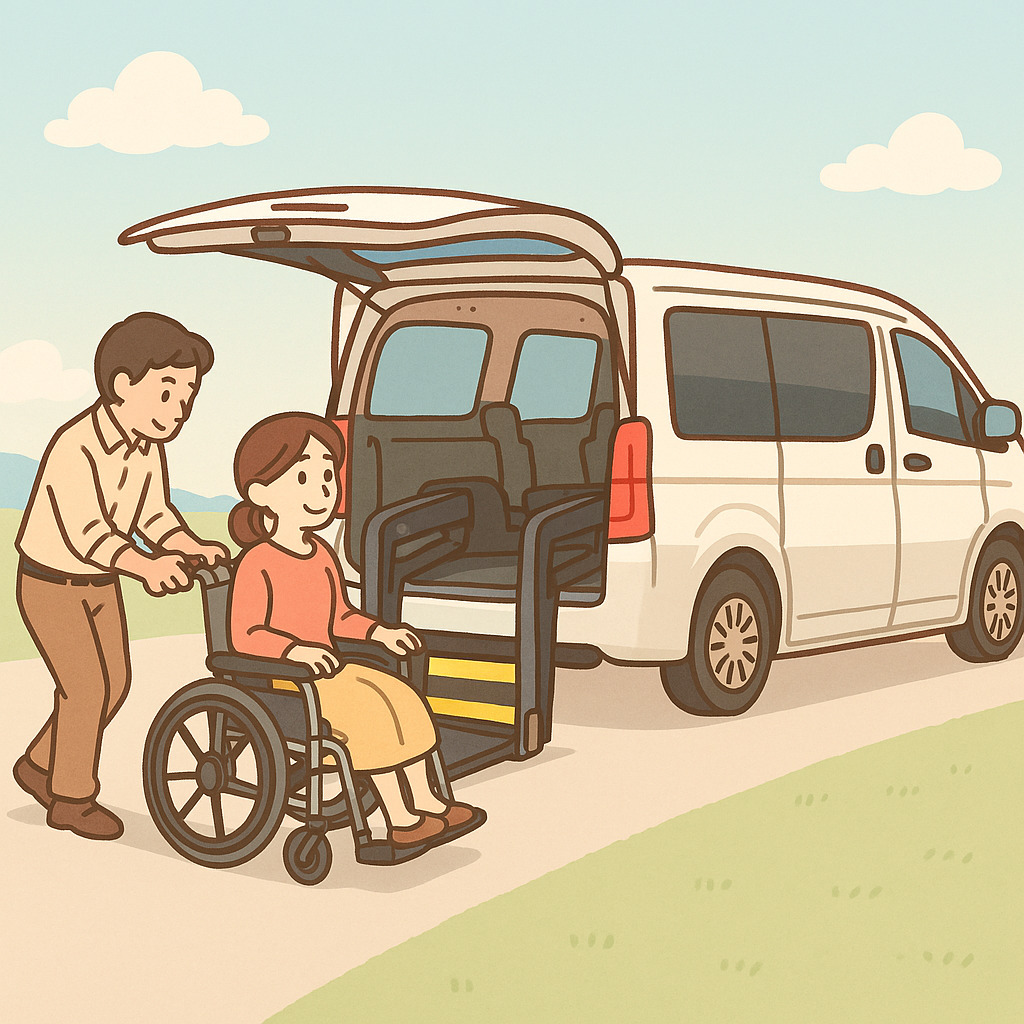
It’s not just for wheelchair users—Tokyo remains the most reassuring travel destination for seniors, individuals with limited mobility, those using canes, travelers undergoing rehabilitation, and anyone carrying assistive devices or needing support. It’s not only fun—it’s accessible, understandable, and exceptionally considerate. From transportation and attractions to hotels and restaurants, Tokyo is one of the most barrier-free cities in Asia.
For people with mobility challenges, Tokyo isn’t a place you “can manage to visit”—it’s a city that’s ready for you.
Excellent barrier-free facilities allow you to explore the entire city:
From transportation and tourist attractions to hotels and restaurants, many places feature comprehensive accessibility designs. An increasing number of accommodations now offer barrier-free rooms with features such as low reception counters, spacious elevators, and emergency call buttons. Accessibility-conscious restaurants also consider the layout of entrances, pathways, and restrooms.
Public transportation and charter services are equally considerate
Tokyo Metro and the JR system provide station staff to assist with boarding and exiting, especially for wheelchair users. Many travel agencies and local services also offer Welcab (wheelchair-accessible vehicles) with lift equipment, making it easy for wheelchair users to travel directly from their hotel to sightseeing spots.
Civic awareness is high, fostering a respectful and helpful atmosphere
Japanese people are generally very respectful toward individuals with limited mobility. They often offer to give way, hold doors open, or help carry items. The overall social atmosphere is one of safety, comfort, and inclusion—without stares or judgment.
Transparent information and convenient planning
There’s an abundance of information available in Japanese, English, and Chinese. You can also check the official website of the Japan National Tourism Organization (JNTO) for multilingual travel resources.
You don’t have to walk long distances to have a great time
Many Tokyo attractions are conveniently clustered and easy to access. For example, Sensoji Temple and Tokyo Skytree make a great pair; Ueno Park combines a zoo, art museum, and science museum all in one stop. The East Gardens of the Imperial Palace and Marunouchi area also feature flat, walkable paths perfect for a leisurely visit.
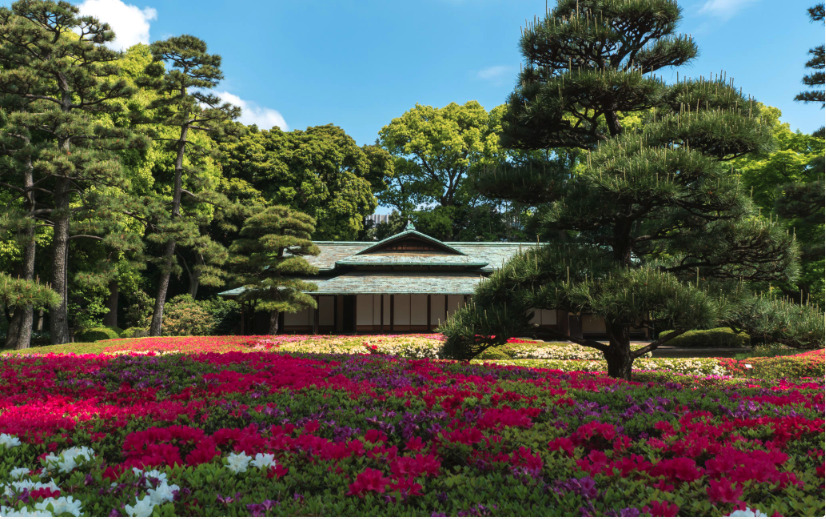
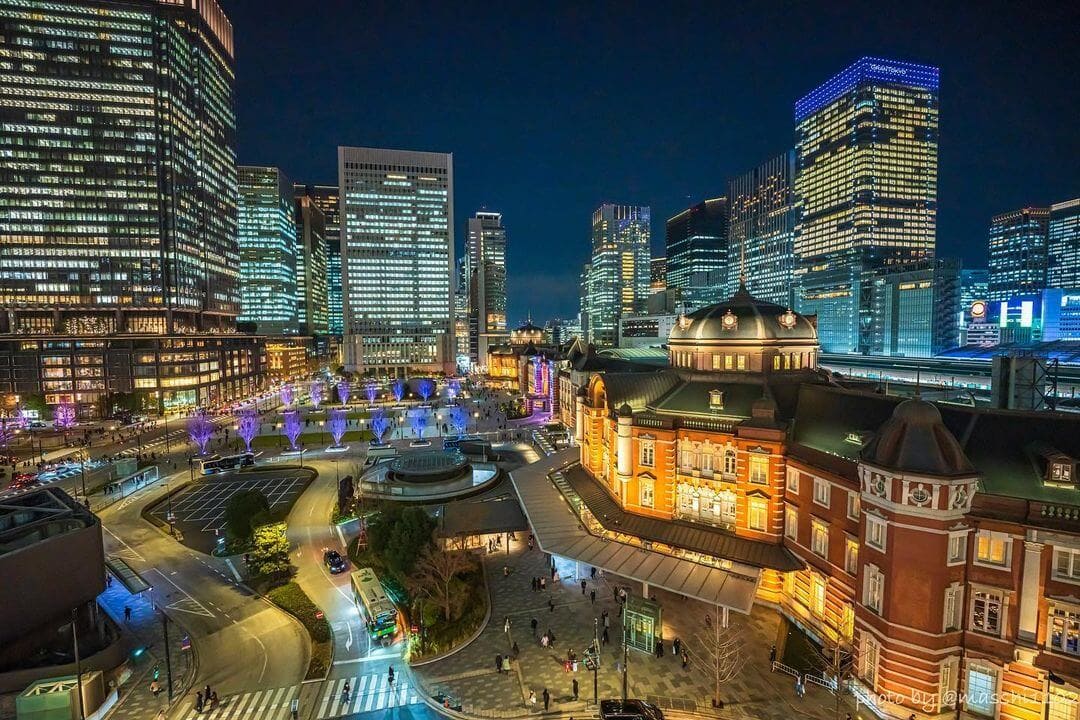

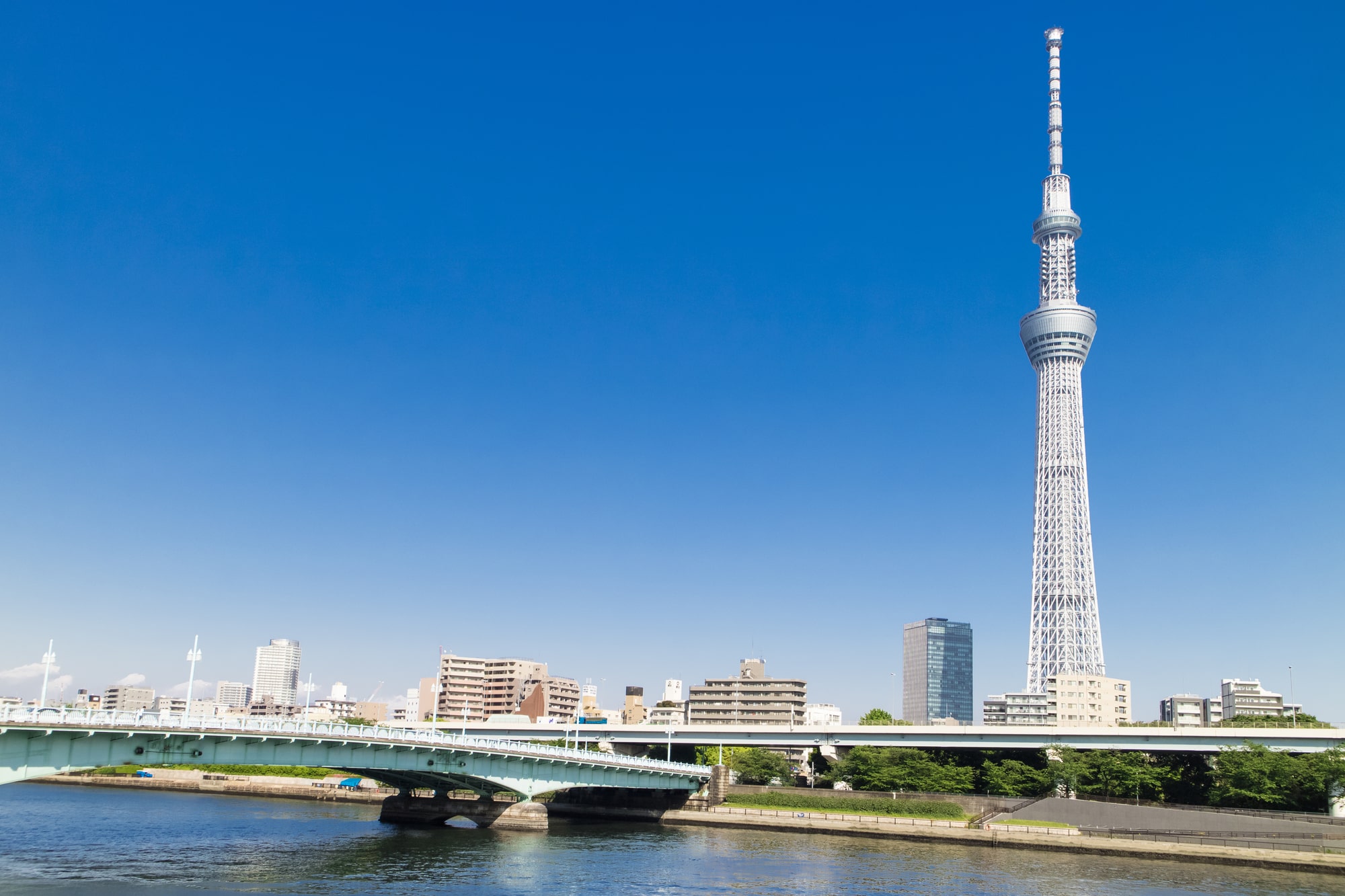

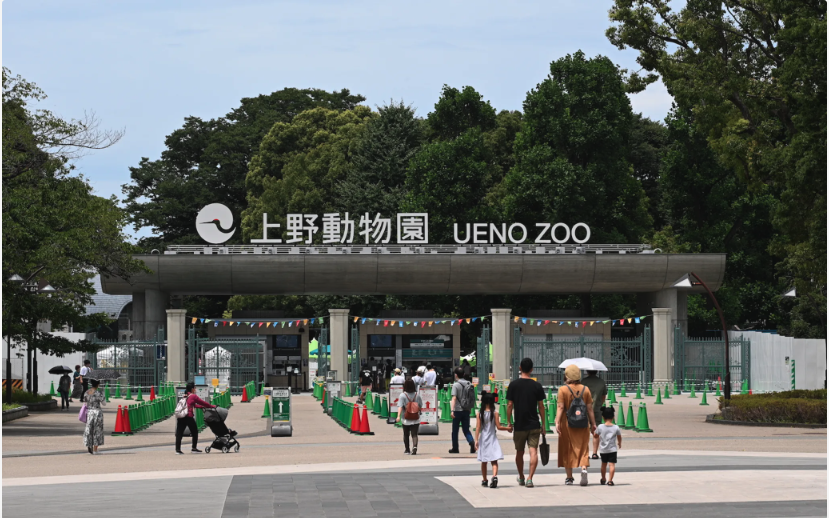
Ghibli Museum, Mitaka
Address: 1-1-83 Shimorenjaku, Mitaka City, Tokyo, Japan
Features: Admission by reservation only. Facilities include lift platforms, accessible restrooms, and wheelchair viewing areas. The fairy tale-style architecture creates a healing atmosphere.
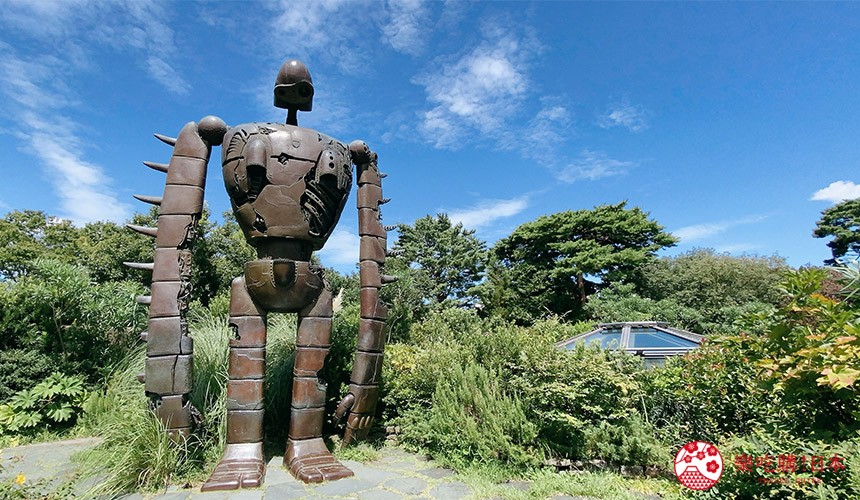
(Image source: 樂吃購!日本 / 拍攝:amo)

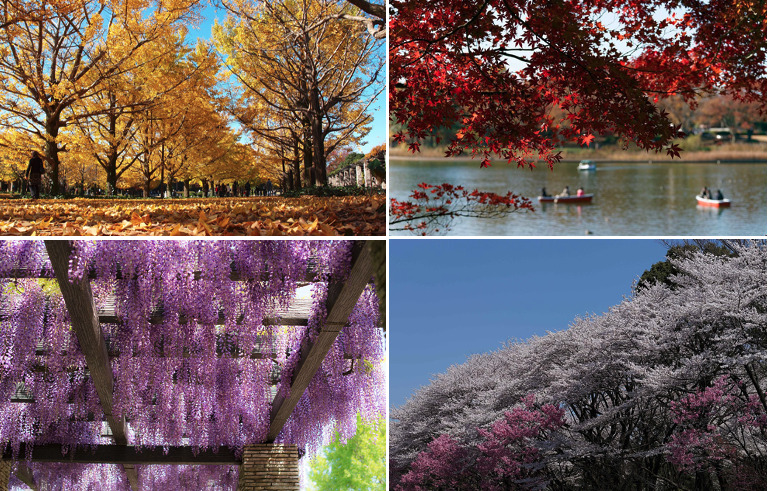
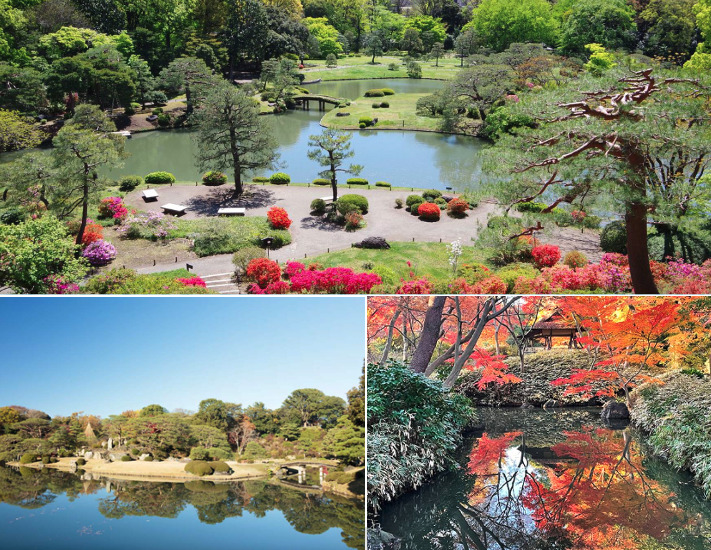
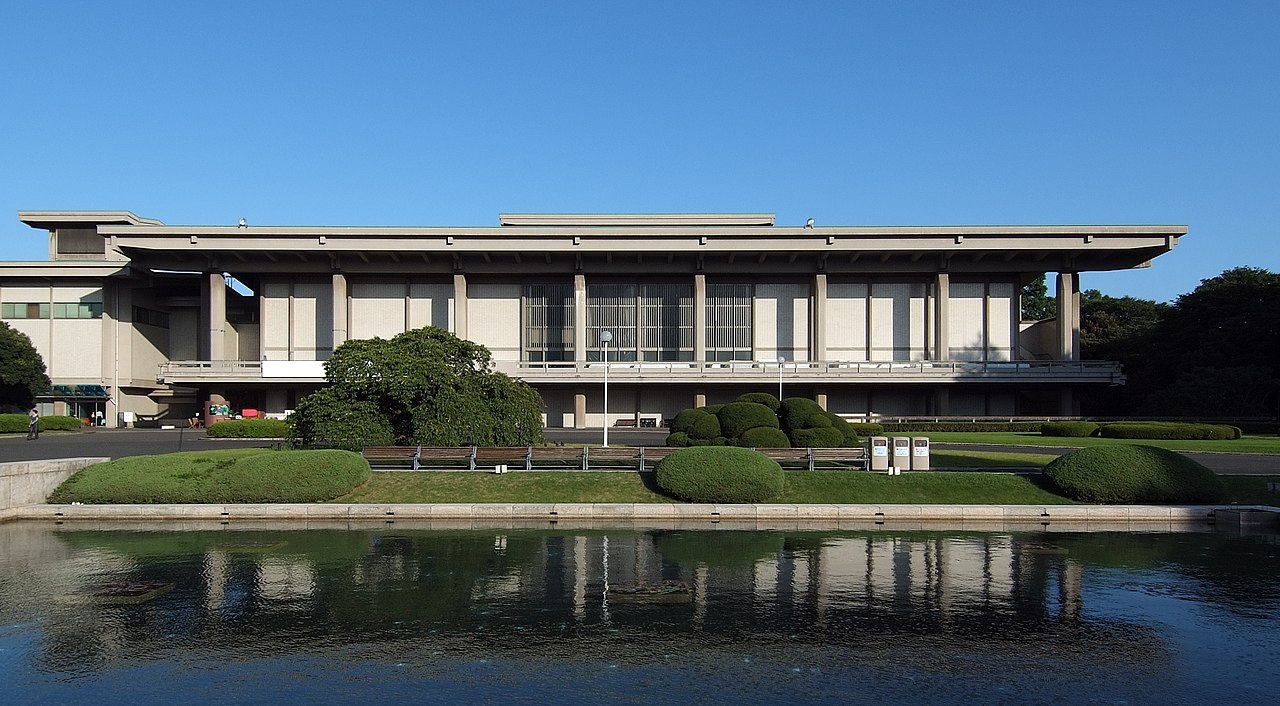
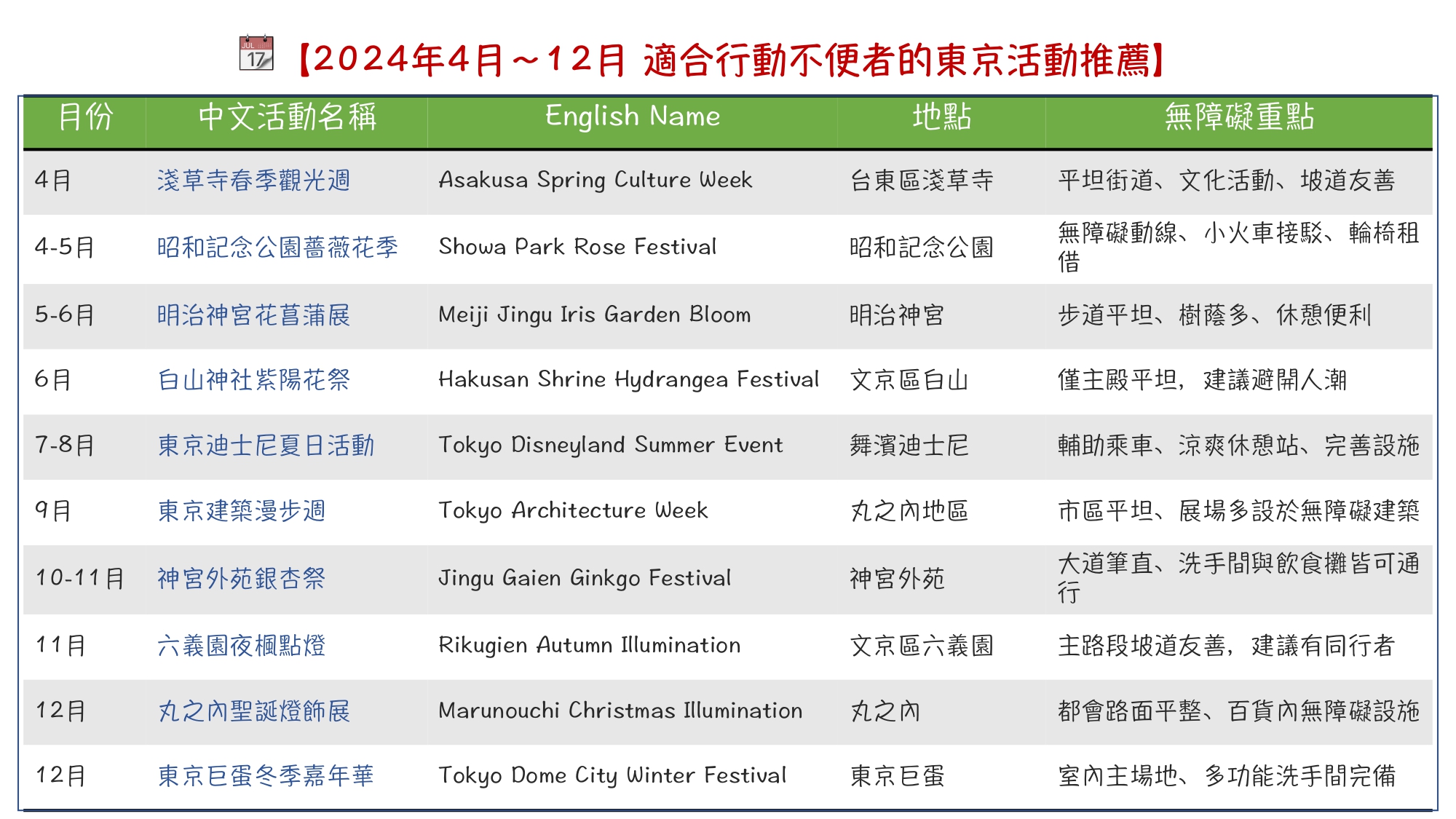
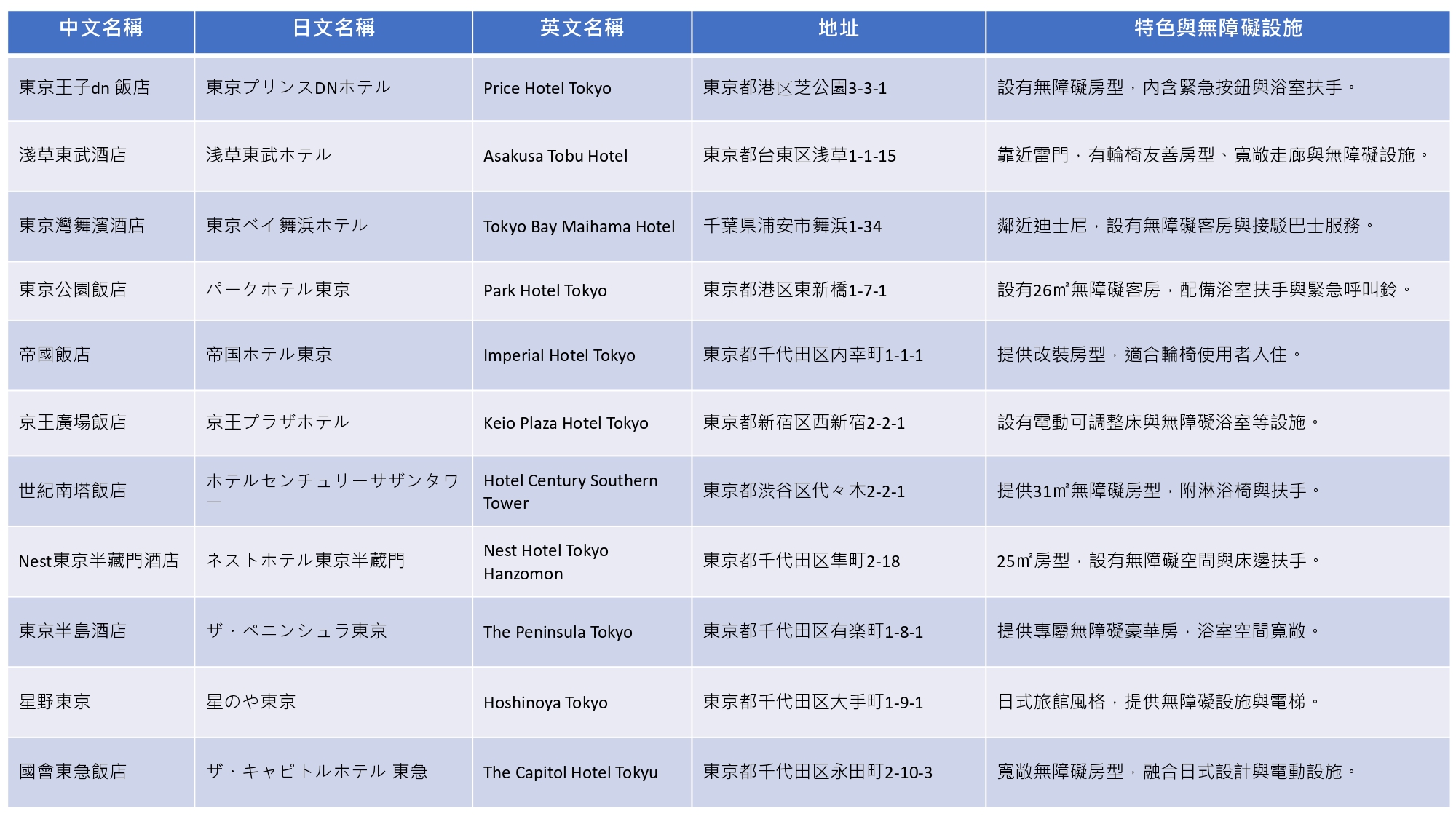
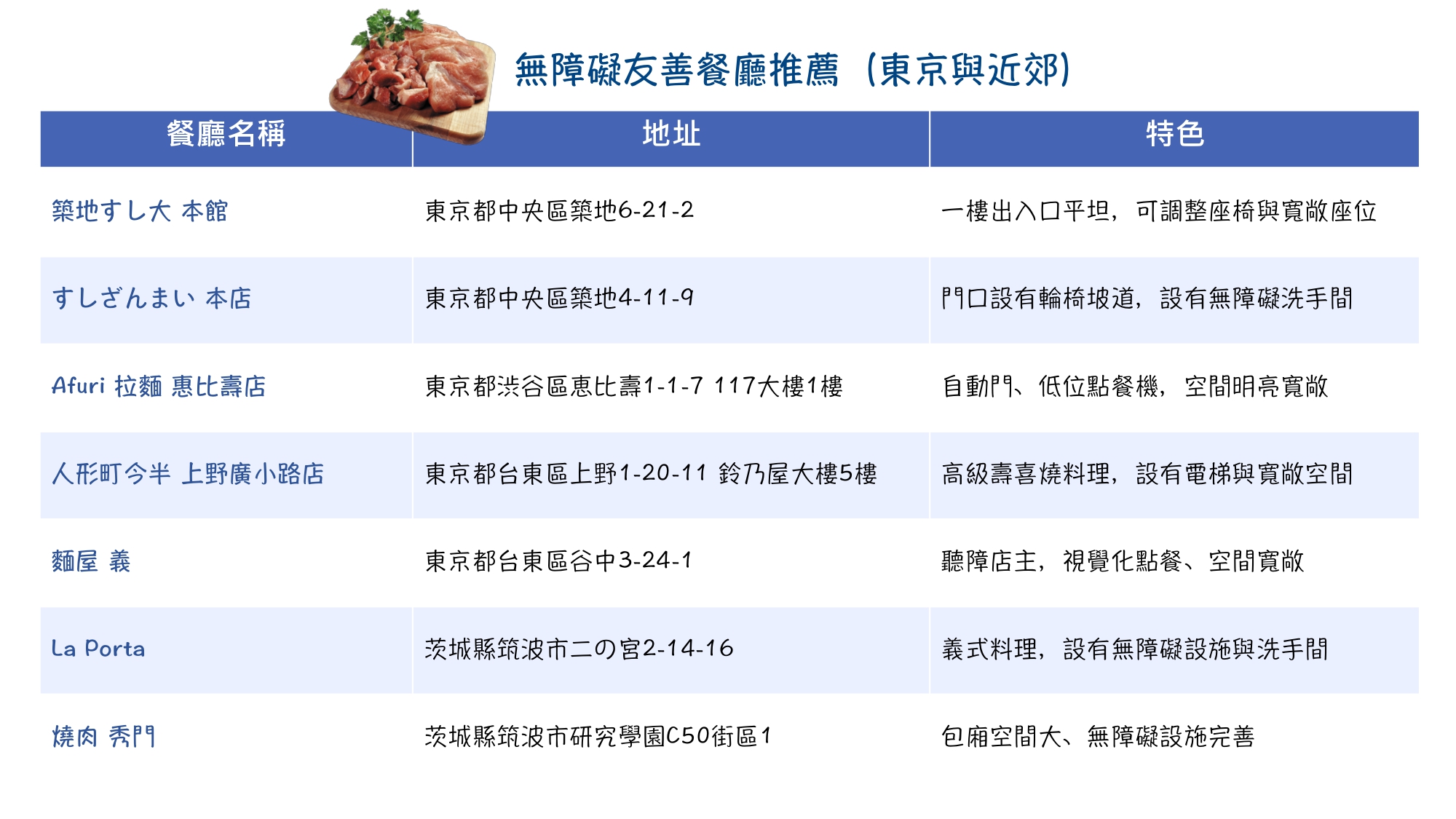
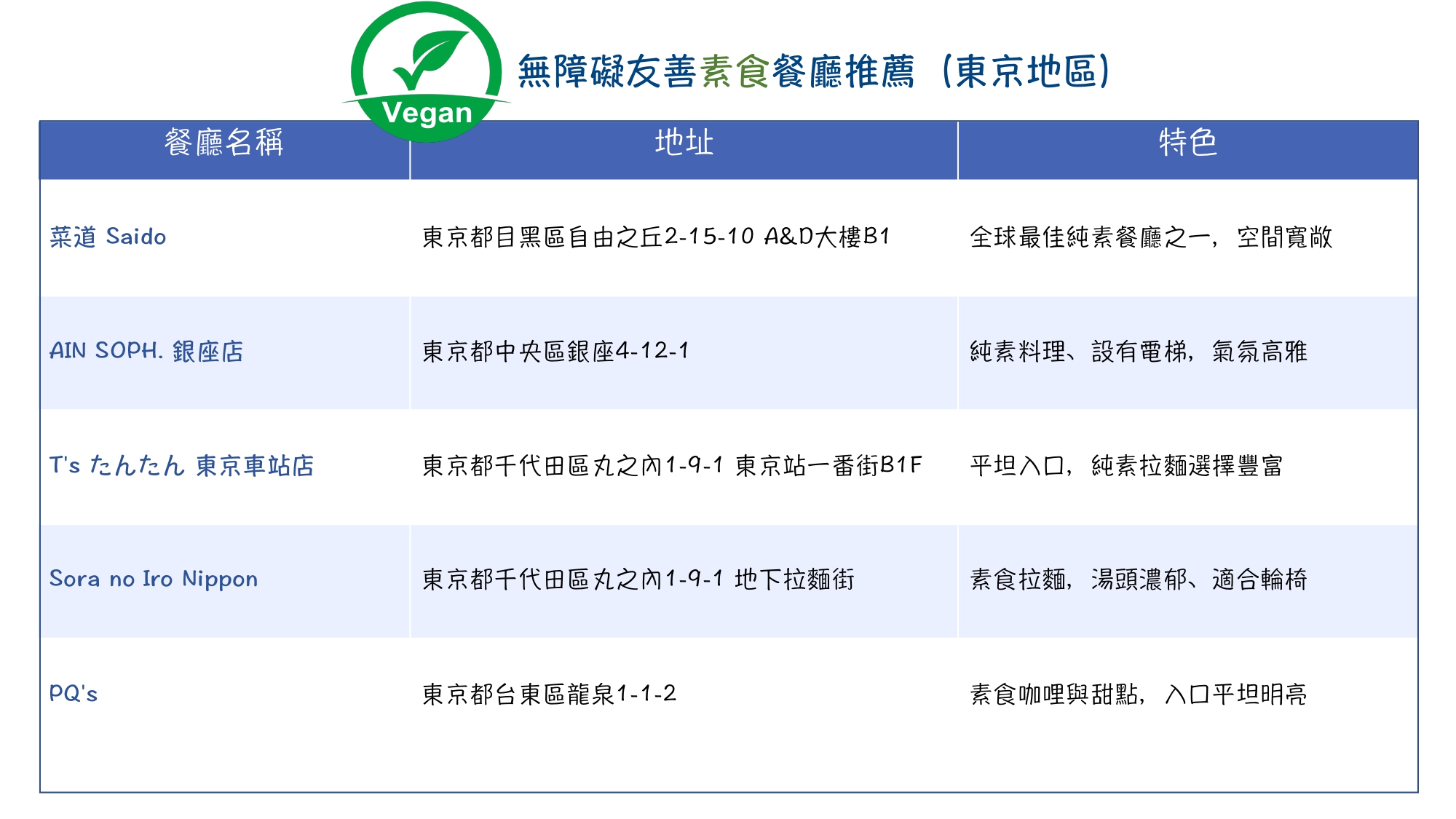
♦ Accessible Travel Services at Tokyo Tourist Information Centers
Tokyo Tourist Information Centers operate at five locations within Tokyo, offering accessible travel services and information for both domestic and international visitors. Services include multilingual communication support and dedicated counters for barrier-free travel assistance.
♦ Information on Travel for Persons with Disabilities by the Japan National Tourism Organization (JNTO)
The Japanese government and related organizations are committed to creating an accessible travel environment. Many major tourist destinations have developed English-language websites providing essential information on accessible services and facilities, including details on accommodation and dining options.
♦ Barrier-Free Sightseeing Charter Services in Okinawa
Okinawa offers accessible sightseeing charter services equipped with electric lifts and barrier-free ramps, making it easy for wheelchair users to board and disembark. These services are operated by Japanese drivers, with Chinese-speaking staff available to assist with communication and ensure a safe and comfortable travel experience.
♦ Barrier-Free Travel Vehicle Services in Japan
Japan’s barrier-free tourist vehicles are specially designed for people with disabilities and limited mobility. They are equipped with electric lifts and accessible ramps to facilitate wheelchair access, ensuring travelers can enjoy a safe and comfortable sightseeing experience.
These resources help ensure that travelers with mobility challenges can access convenient Chinese-language support and barrier-free facilities when traveling in Japan.
Table of Everyday Convenience Facilities and Services (Chinese–Japanese–English)
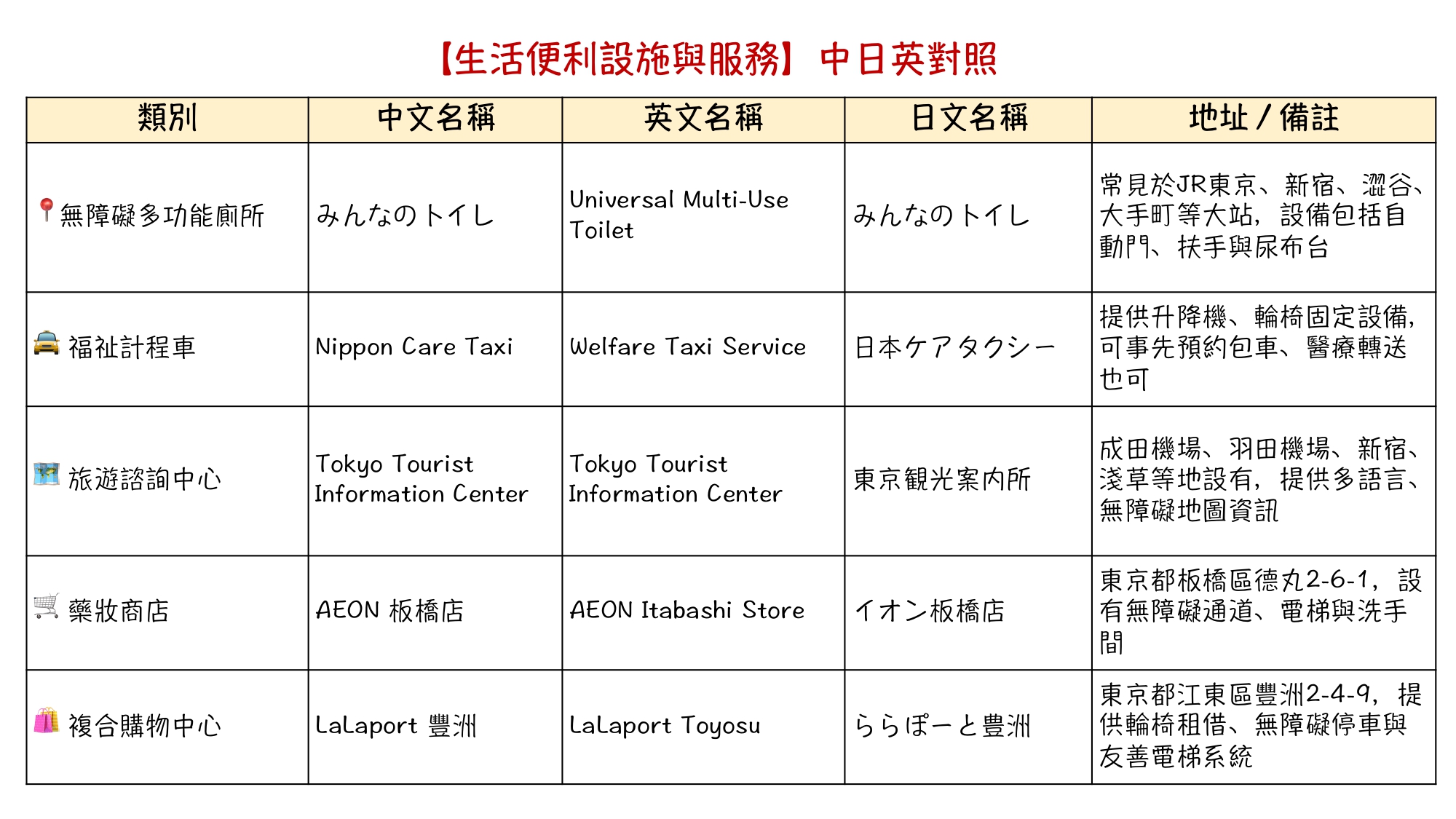
Recommended Charter Vehicle Routes and Itineraries
-
Travelers with limited mobility often choose routes and attractions in Tokyo with well-developed accessible facilities. Here are some common and friendly travel itinerary suggestions:
1. One-day trip to Asakusa and Tokyo Skytree
Senso-ji Temple: The oldest temple in Tokyo, with the famous Kaminarimon Gate at its entrance. The area around the temple features flat stone-paved paths, ramps, and accessible restrooms, making it easy for wheelchair users to navigate.
Nakamise Shopping Street: A traditional shopping street connecting Kaminarimon Gate to Senso-ji Temple, offering various local snacks and souvenirs. The passage is wide and suitable for wheelchair access.
Tokyo Skytree: As the tallest freestanding broadcasting tower in the world, it is equipped with spacious elevators, wheelchair rental services, low reception counters, and accessible restrooms, allowing visitors with limited mobility to enjoy panoramic views of Tokyo.
2. Half-day trip to Shinjuku Gyoen and Meiji Jingu Shrine
Shinjuku Gyoen National Garden: A public park that blends Japanese and Western-style landscaping. The park features flat, open pathways, making it easy for wheelchair users to enjoy the beauty of the changing seasons. Visitors with disability certificates and one accompanying person can enter free of charge.
Meiji Jingu Shrine: One of Tokyo’s most famous shrines, surrounded by a dense forest. The main approach to the shrine is wide and flat, suitable for wheelchair access. It is recommended to check the location of accessible facilities in advance to ensure a smooth visit.
3. Family-friendly trip to Shinagawa Aquarium and Ueno Zoo
Shinagawa Aquarium: A modern aquarium featuring lights, sound, visuals, and performances. The facility offers ramps, elevators, free wheelchair rental, and multifunctional accessible restrooms. Visitors with disability certificates and one accompanying person are eligible for half-price admission.
Ueno Zoo: The oldest zoo in Japan, offering electric wheelchair rentals, dedicated pathways, accessible viewing platforms, and numerous wheelchair-friendly trails, making it easy for travelers with limited mobility to view animals.
4. Visit to the Imperial Palace East Gardens and shopping in Ginza
Imperial Palace East Gardens: Located within the Imperial Palace grounds, the gardens feature historical landmarks and beautiful scenery. The main walkways are flat and wide, with accessible facilities suitable for wheelchair users.
Ginza: Tokyo’s famous luxury shopping district. The streets are wide with accessible sidewalks. Most large department stores and shops are equipped with elevators and accessible facilities, making shopping and dining convenient for visitors with mobility challenges.
5. Full-day trip to Tokyo Disneyland
Tokyo Disneyland offers wheelchair reservations, assisted boarding services, designated viewing areas for persons with disabilities, and staff assistance. The park’s facilities are highly accessible, ensuring that visitors with limited mobility can enjoy various rides and shows.
When planning your trip, it is recommended to contact each attraction or facility in advance to confirm the specific accessibility features to ensure a smooth experience. In addition, the Tokyo Tourist Information Centers offer barrier-free tourism services, providing useful information and assistance.
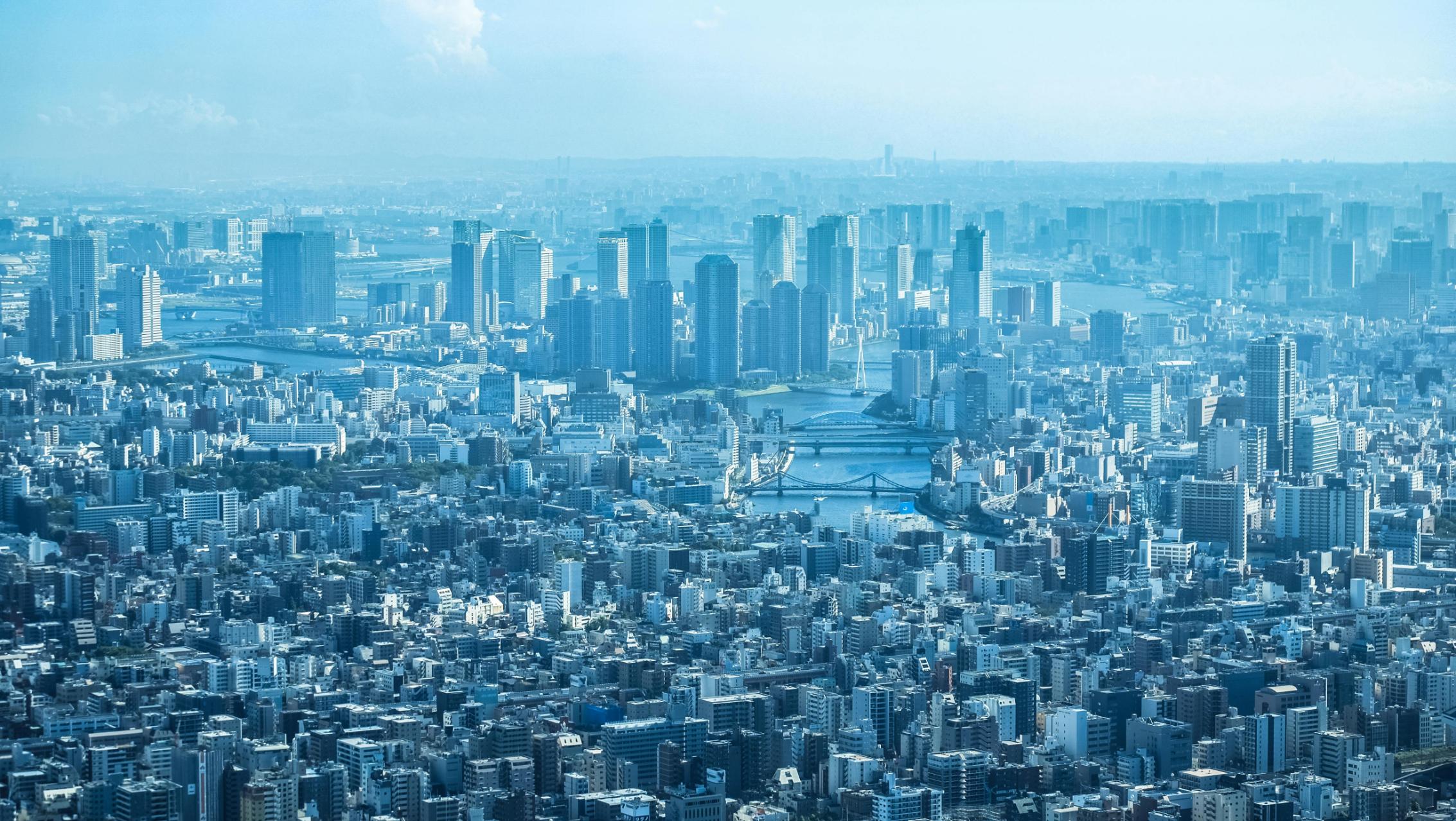
Frequently Asked Questions About Accessible Charter Travel
What services are included in Japan's accessible charter vehicle service?
Japan’s accessible charter vehicles are specially designed for people with physical disabilities and limited mobility. These vehicles are equipped with electric lifts and accessible ramps to facilitate boarding and disembarking for wheelchair users, ensuring a safe and comfortable travel experience. A one-day charter service typically includes a dedicated vehicle and driver, fuel costs, the driver’s meal expenses, and travel insurance.
What destinations can Japan’s accessible charter vehicles travel to?
Japan’s accessible charter vehicles can travel to various tourist destinations, such as shrines and temples, castles, parks, and shopping centers. Customized travel routes and services can also be arranged.
What is included in the charter fee? Do I need to tip separately? How is the overtime charge calculated?
The fee includes fuel and insurance; it also covers toll fees, parking fees, and the driver’s meals and accommodation. The standard charter service duration is 10 hours per day. Tipping is not mandatory and can be decided at the customer’s discretion based on the quality of service. Overtime charges vary depending on the region and date. It is recommended to consult the customer service center in advance to estimate the potential overtime fees.
Can we make last-minute changes to destinations or departure time on the day of the trip?
The charter service is based on the itinerary agreed upon by both parties. The timing will follow the travel pace of the day, and there is no strict time limit for staying at each destination. In case of unforeseen situations on the day of travel, flexible adjustments can be made depending on the circumstances. If there is a need to change the departure time, please confirm with the driver at least one day in advance.
What does the charter insurance include? After TTtrips arranges additional insurance for us, do we still need to purchase our own travel accident insurance?
The insurance includes commercial vehicle liability insurance, compulsory automobile liability insurance, and travel agency liability insurance totaling up to 6 million yen. We recommend that customers purchase their own travel accident insurance regardless of the destination country, for greater peace of mind. This provides additional protection in the event of injury or illness due to personal or other unforeseen factors during the trip. The insurance arranged by the company for customers only applies in cases where TTtrips is found responsible for any negligence.

TTtrips Japan Charter Service Highlights
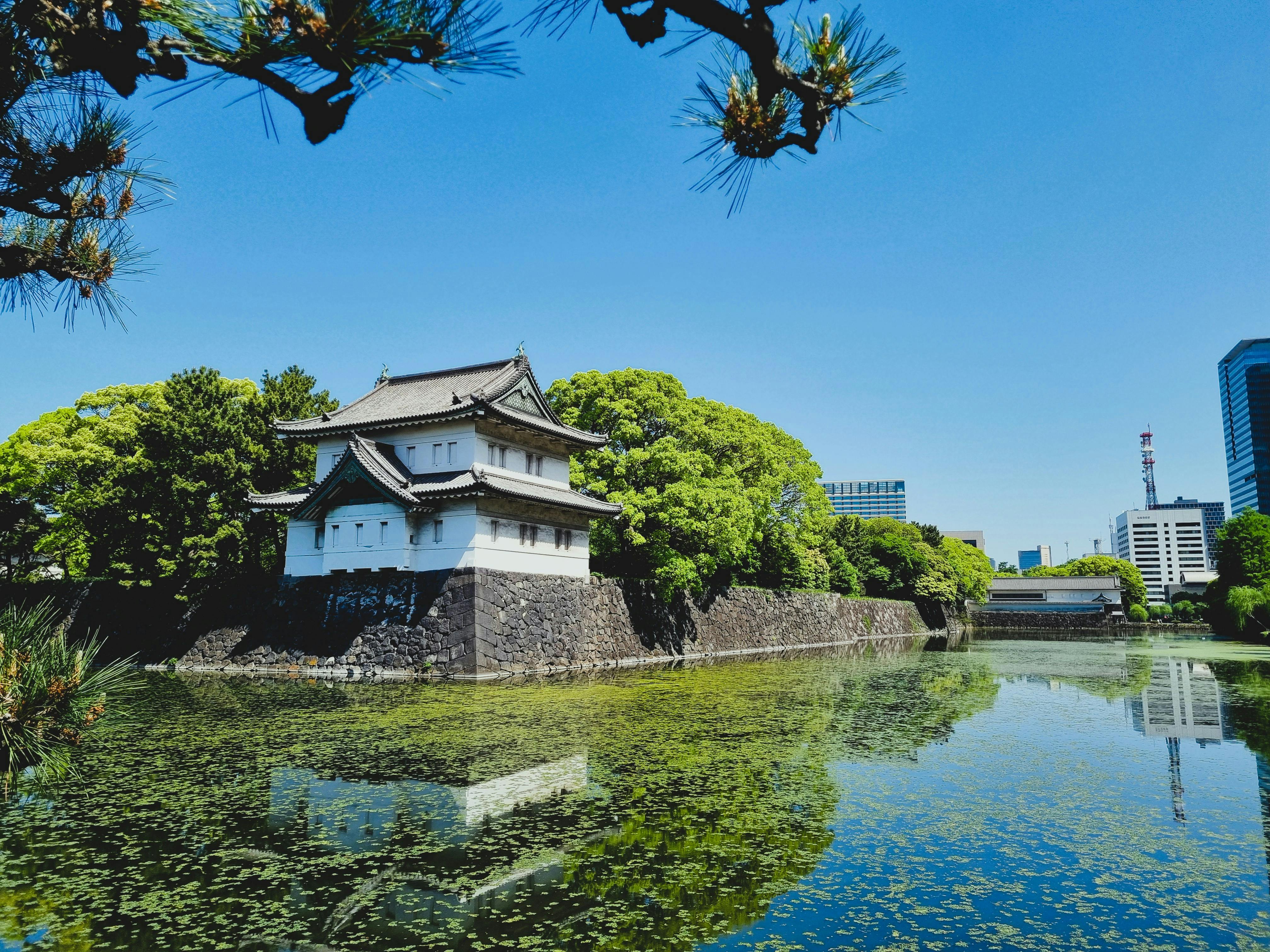
2025 TTtrips Exclusive Early Bird Discount
Book two months in advance and enjoy the following limited-time offers:
Perfect for family trips—safe, convenient, and cost-saving! Limited availability, so book early to secure your spot.